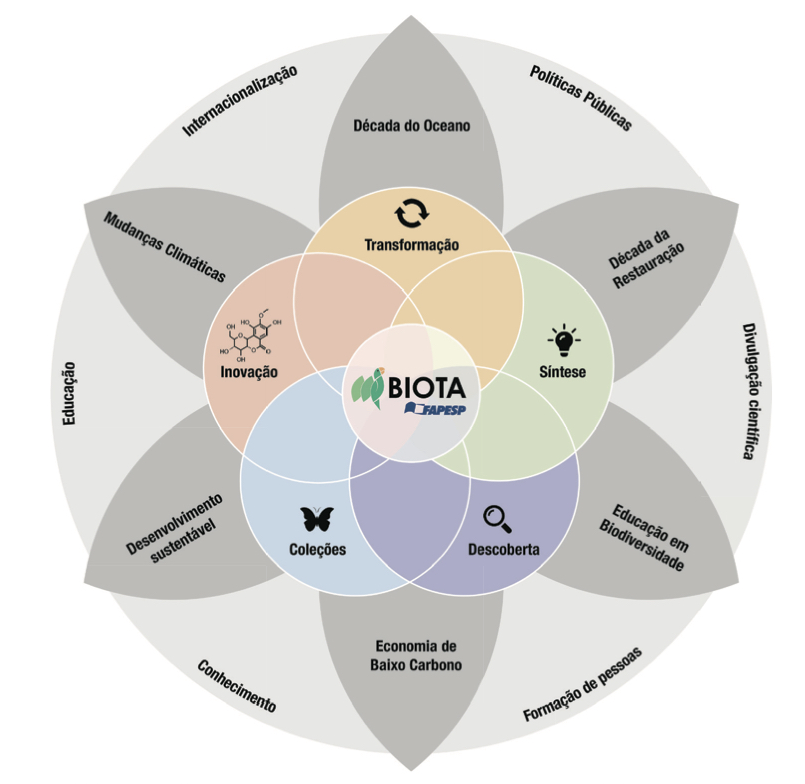PLANNING FOR THE NEXT DECADE
In 2020 the Biota Program completed two successful decades of promoting research into biodiversity and nature conservation. Entre 2020 e 2022 foi realizado um extenso processo participativo, com reuniões e uma consulta pública aos pesquisadores. Between 2020 and 2022, an extensive participatory process was carried out, including meetings and a public consultation with researchers. This process resulted in the BIOTA 2030 STRATEGIC ACTION PLAN (in Portuguese), which sets out the goals and objectives for the Program’s third phase.
As a result of this planning process, five thematic axes were defined that will guide the Biota Program’s actions until 2030: “Discovery”, “Collections”, “Synthesis”, “Transformation” and “Innovation”. The first two are lines of work that have been developed since the beginning of the Program and are considered as supporting lines for the other proposed axes.

“Discovery” consists of research aimed at understanding the mechanisms and processes of ecological functions related to both the maintenance and the change of biodiversity throughout the evolutionary process. The “Collections” axis comprises research on biological collections and mechanisms for maintaining, diversifying, increasing and improving access to these spaces.
“Synthesis” will seek to promote the collaborative science of synthesis and stimulate new ideas, approaches and solutions related to the understanding, conservation, or use of biodiversity. One of the emphases of this axis is an aspect that has been dear to the BIOTA Program since its inception: the training of a new generation of researchers capable of working increasingly collaboratively and in research networks.
The “Transformation” axis will seek to increase knowledge about the role of biodiversity as a central element in the transition to sustainable socio-ecological systems. Socio-environmental governance practices, policy and project decision support, scenario building and communication strategies, and co-production of knowledge with society to address current socio-environmental crises are some of the challenges to be addressed in this axis.
“Innovation” focuses on promoting, encouraging and identifying opportunities for innovation in bioproducts and ecosystem services. Encouraging the creation of innovation projects within the BIOTA program, linking different sectors of the innovation chain and promoting a culture of entrepreneurship in the training of human resources are some of the actions proposed for this axis.
